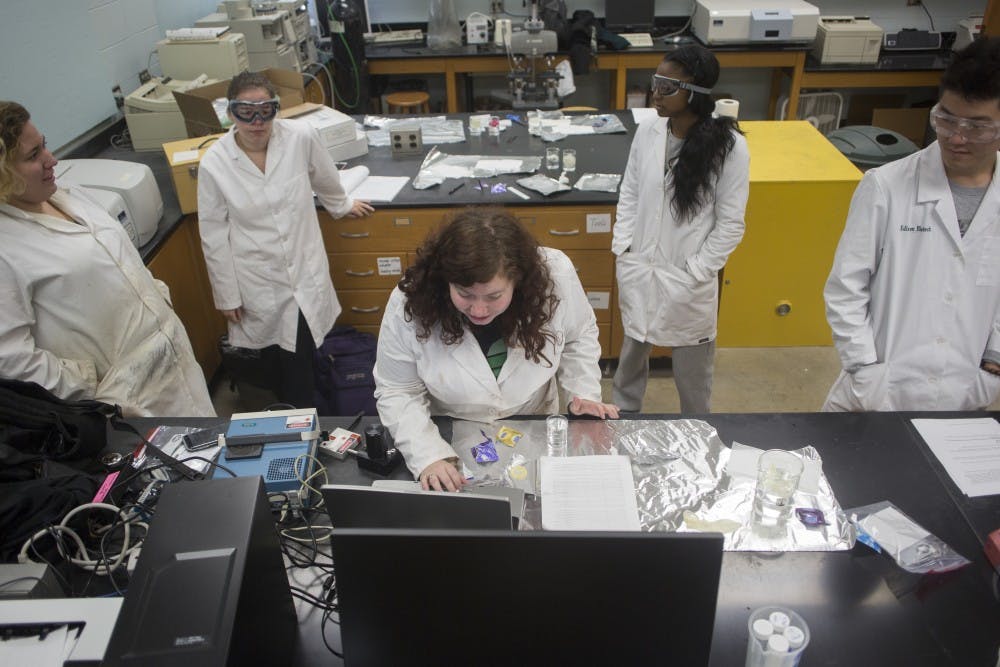Correction appended
For the second year in a row, Ohio University’s forensic chemistry program is the first in the nation, according to the American Board of Criminalistics.
The success comes after development in the program by Jules Guei, a professor in the forensic chemistry program. In 2012, after the former professor in the program retired, Guei began teaching and took a new approach.
“I developed a new curriculum that’s geared towards forensic toxicology,” Guei said.
The emphasis of this new curriculum was bio-transformation, which is the transformation of chemical compounds within a living system. The definition Guei uses for bio-transformation is the metabolic conversion of chemicals to more water-soluble substances that are readily excreted from the body.
Guei geared the course towards both controlled and uncontrolled substances, which the program used in its studies and analysis. After a year of teaching, the program went from being ranked 11th to being ranked eighth by ABC. Two years after that, the program was ranked number one in its Forensic Science Assessment Test scores.

The success of the program is recognized by the accreditation it has received from the Forensic Science Education Programs Accreditation Commission. The accreditation is attracting students who are interested in going into a program that can guarantee them a good education.
“I was attracted to this program because of the FEPAC accreditation,” Maryssa Beasley, a senior in the Forensic Chemistry program, said. “(It) basically ensures that we get good forensic training and a lot of chemistry in our program. It’s pretty much what drew me here.”
The program incorporates real world cases. Guei has developed connections with lawyers and state labs to develop those real world cases and give students a chance to solve them. The use of real-world scenarios throughout the program has provided an opportunity for growth among its students once they reach senior year and work closely with real world cases in the lab.
“(We are) more comfortable and (know) what we are doing,” Yamonie Jenkins, a senior in the Forensic Chemistry program, said. “We don’t need to have a lot of instruction now because we have used the instruments over and over again in all of our classes, so we are very comfortable with it.”
Going from being ranked 11th to being ranked first within four years, the program has seen success and development that has gotten it to where it is now.
“These results come from many things,” Guei said. “Although I am the one who developed the course and (teaches) the lecture and the lab, I think other faculty have some credit there.”
Correction: A previous version of the article did not identify the correct name of the program. The program is for forensic chemistry. The article has been updated to show the most accurate information.






